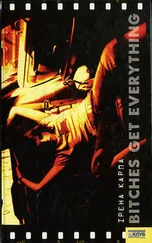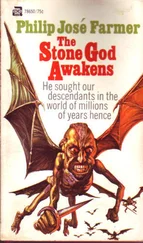But in the Army he came to understand the importance of letters, no matter how ordinary their contents. Never more so than on that day in Brighton when a sepoy from Peshawar had come hobbling into his ward, waving a piece of paper in his hand and said, Finally a letter from home. Qayyum had taken the paper and recognised the handwriting. His voice was not entirely steady as he and his father clasped hands across the world to tell the sepoy everything was well, the harvest had been good, the chicken had recovered.
As the morning became afternoon, everything slowed. The muezzin’s voice wavered as he sent the call to prayer winging out from the minaret of Mahabat Khan Mosque. A blur descended onto the inkhorn. Qayyum lifted the horn from its holder, and saw a fly struggling to stay afloat in its dark waters. The ink an ocean of death. Carefully, he positioned his quill beneath the thrashing insect and lifted it out, flicking it onto the ground as soon as it was clear of the ink. The fly staggered about, blue smudges its trail, its wings rising and falling impotently. Qayyum took the pitcher near his feet, dribbled water onto his hand and from there dropped the tiniest quantity onto the fly.
— Working hard, Lala?
Qayyum snapped his wrist and the remaining water sprayed Najeeb, who responded with the giant smile.
— Instead of bathing flies, come and listen to a badala with me.
The knife-sharpener who shared the canopy with him said he’d look after Qayyum’s belongings, his knife cleanly slicing the still-flailing insect in two as he spoke. Najeeb took hold of his elder brother’s hand and led him towards the Street of Storytellers, chattering away about how there were so many stories of Peshawar that none of the Storytellers in the bazaar ever told; all his life he’d heard the same old tales and maybe he should be the one to let the Storytellers know that there were other possibilities. There was a particular confidence in him that seemed to grow daily, hard to pin down; it would be necessary to make sure it didn’t become arrogance. But for the moment it consisted primarily of exuberance, and Qayyum couldn’t help smiling at the thought of his brother approaching an old storyteller, informing him that he had a better story than any of the old tales of the bazaar. Probably something he’d picked up at the Mission School — please let it not be a story of Christianity, or somehow that would get back to their mother who had only grudgingly given in to Qayyum’s insistence that Najeeb needed to be educated in the English way if he was to progress through the world.
The brothers walked through the Street of Storytellers, Qayyum’s elbows jutting out in that posture which had started as self-protection, a guarding of the space around himself, and was already becoming an attitude of ownership. He slowed as they approached the lines of Storytellers who were offering familiar fare, the stories of Peshawar unchanged through generations as Najeeb had said: ‘Laila Majnu’, ‘Hazrat Ali’, ‘The Prince and the Fakir’, Hadda Mulla’s jihad against the English. This last story had gathered the largest crowd, and Najeeb squeezed himself in among the gathering, leaving Qayyum no choice but to follow though he’d have preferred ‘Laila Majnu’.
The English approached, armed to the teeth.
Hadda Mulla, their foe, finally within reach.
In cover of darkness they crawled into town
When thunder and lightning and hail crashed down.
Everything lit up so all — all! — could see
The white man’s forces assaulted by bees.
A handful of stings and they’re overpowered,
Is it bees or Allah’s wrath that makes them such cowards?
A decade and more has passed since then
But now hear the call for jihad once again.
Haji Sahib in the hills is gathering his forces
Rise up! Join him! By foot or on horses.
What did it mean, this great emptiness which opened up in Qayyum’s chest in response to the Storyteller’s badala? A Mohmand tribesman raised his gun in the air at the end of the last couplet, the butt of a rifle catching Qayyum on the shoulder. Men around him cheered, and repeated the last line back to the Storyteller. Rise up! Join him! Qayyum turned on his heels and walked briskly away. It wasn’t until he was back under the canopy, flicking away the two pieces of the fly with his toe, that Najeeb caught up with him.
— I’m sorry, Lala. I didn’t know there’d be so many people.
He pushed Najeeb away, more roughly than he’d intended.
— What will our mother say if I come home without money because I’ve been listening to silly tales all day? Go, get out of here. Let me work.
— You’re afraid of everything, Najeeb shouted, and ran away before Qayyum could respond.
Qayyum looked down at his hand, rubbing his thumb against the bump on the side of his finger formed by holding the quill in place. It had replaced the old rifle-calluses. How could Qayyum tell his brother that he hadn’t walked away from the Storyteller because of the crush of people, or the threat of a rifle to his eye. He left because for a moment he pictured himself in the uniform of the British Indian Army, and what he felt was shame.
A tarpaulin flew off a donkey-cart. The load of hand mirrors caught the sun, threw circles of light up onto surrounding facades whose windows flung the glare back into the eyes of the men on the street — camel-drivers, Victoria-drivers, merchants, customers, wayfarers. Dazzling chaos. A bolting donkey, an upturned cart of turnips, a man walking into a tower of brass urns; the blur of other things falling, colliding at the periphery of Qayyum’s vision. He closed his eyes for a long moment, but without any feeling of panic. Weeks of working in the bazaar, watching its everyday courtesies and camaraderie, and other people had ceased to be a threat.
In just the second or two that he wasn’t looking everything moved quickly into aftermath. No signs of serious damage, but in the absence of tragedy there was nothing to leash the frayed tempers of summer. Men were stepping out of shops, dismounting bicycles, pointing at scrapes and cuts and dented brass. Ugliness in the air; any moment there would be fists or blades.
A young boy who had been trying to sell Qayyum an oxtail fly whisk from the tray he was carrying in his too small arms set it down on the pavement beside the knife-sharpener, dashed across the street to the donkey-cart, lifted out a mirror which he angled so that it struck reflected sunlight into the eyes of a man whose raised voice, directed at the cowering donkey-cart driver, was on the brink of violence. The man shielded his eyes, turned in the direction of the boy, anger swerving. Laughing, the boy lowered the mirror, his little hand covering part of its surface so that a circle of light appeared over the man’s genital area, a hand silhouetted within, groping about as though trying to catch hold of something that wasn’t there.
Raucous laughter broke out in the street; the boy darted back to the pavement, made a noise of indignation at the flies which had settled on his whisks, picked up the tray and was surrounded by customers, including the knife-sharpener. The man who had knocked over the brass urns helped the donkey-cart driver replace the tarpaulin, and the man who had been on the receiving end of the boy’s teasing pointed towards his groin and said, First time, even my wife thought a thing that size must be my thigh, which turned him into a hero, though not because anyone believed the brag.
How Qayyum loved these men. Why had he ever chosen to live his life away from them?
He was still smiling when another boy approached, hair matted, clothes tattered. He held out a piece of paper and Qayyum told him to sit down; he had the look of someone who planned to race off without paying as soon as Qayyum finished reading. That almost never happened — people seemed to want to keep hold of anything addressed to them, even if they couldn’t understand the symbols on the page — but there were always exceptions. But the boy just laughed and walked away, leaving Qayyum holding the piece of paper.
Читать дальше












